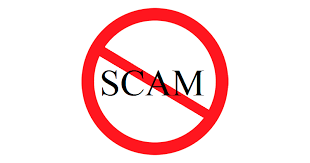Local News
Medicare Open Enrollment Scams

The Medicare open enrollment period from October 15 to December 7 allows beneficiaries to evaluate and make changes to their Medicare plan. Changes will take effect on January 1, 2025. Medicare Advantage (Part C) and prescription drug insurance (Part D) plans change from year to year, and beneficiaries could possibly save hundreds of dollars by shopping around and comparing their options. Learn more about Medicare and specific plans at medicare.gov.
Unfortunately, Medicare open enrollment is also a prime opportunity for scammers, so seniors and caretakers should be cautious of scams and fraud during this time. Here are a few common Medicare enrollment scams to be aware of:
· A phone call asking you for your Medicare number, credit card information, address, and/or other billing details so they can “renew your coverage” or “send you a new Medicare card.”
· An alleged insurance agent or broker offers you a too-good-to-be-true deal on supplemental insurance, a Medigap plan, or a Medicare Advantage private insurance plan.
· Door-to-door solicitors claiming to be Medicare staff or other federal employees offering exclusive savings or discount products.
Other Medicare scams you could encounter throughout the year include:
· Messages like emails or robocalls offering free medical services or supplies.
· New vaccine promotions stating you need to pay out-of-pocket, but Medicare can reimburse you.
· A telemarketer trying to sell you DNA tests they claim are covered by Medicare. Medicare only covers genetic testing in limited circumstances, so you will likely end up paying most of the bill.
· You overpaid for your benefits and are owed a refund! Just provide your Medicare information and you’ll receive money back right away.
Never give personal information to anyone who contacts you out of the blue, even if the request seems to come from Medicare. This includes your Medicare Number, Social Security Number, financial account or payment details, and personally identifiable information. They are probably a scammer who wants to steal your money or identity.
Medicare will never visit you at your home or contact you to sell insurance or healthcare products. Medicare will not call you unless you contacted them first; even if a cold caller knows some information about you, it is almost certainly a scammer. If you’re unsure if a call is real, hang up and call Medicare at 1-800-MEDICARE (1-800-633-4227). To report a scam, call the same number.


